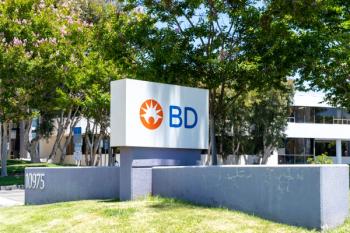
Cohesive Tech Announces Collaborative Agreement with Clinical Center
Cohesive Technologies Inc. announced today that it has entered into a collaborative agreement with Mayo Clinic to increase patient sample throughput and improve data quality using Cohesive's proprietary turbulent flow chromatography (TurboFlow? technology) systems for clinical assays using tandem mass spectrometry (MS/MS).
Cohesive Technologies Inc. announced today that it has entered into a collaborative agreement with Mayo Clinic to increase patient sample throughput and improve data quality using Cohesive's proprietary turbulent flow chromatography (TurboFlow technology) systems for clinical assays using tandem mass spectrometry (MS/MS).
The collaboration has been established to accelerate the development of clinical assays in such areas as endrocrinology, toxicology, drug monitoring, and neonatal screening. As part of the collaboration, the companies will share in the development of new TurboFlow and mass spectrometry methods in order to improve the quality and efficiency in diagnostics for adults, children, and newborns. These methods will be based on Mayo Clinic's goals for throughput and the potential impact to patients.
While tandem mass spectrometry is being widely adopted in clinical diagnostics to drive down false positives and improve limits of detection, these labs struggle with the lengthy sample preparation required and high capital costs associated with tandem mass spectrometry. Cohesive's systems have been adopted because they address these sample preparation bottlenecks and also reduce capital requirements, thus making MS/MS more economically feasible for the diagnostic marketplace.
"The progress we have made applying turbulent flow chromatography and multiplexing to the clinical diagnostic marketplace, along with Mayo's clinical expertise, make this program ideal for extending the reach of LC-MS/MS," said Peter Glick, President and CEO. "We see this collaboration as a way to develop more powerful methods sooner, which will enable physicians and their patients to get more accurate results, and thus improve the quality of care."
Cohesive Technologies develops, manufactures, and markets novel liquid chromatography systems and chemistries for the pharmaceutical, biotechnology, and clinical diagnostic marketplace. These products have made Cohesive a leader in creating new tools for high-throughput bioanalysis. Detailed information about Cohesive Technologies' products and technology can be found on its website, http://www.cohesivetech.com, which also has a bibliography of publications by Cohesive customers describing their successful use of the technology.
Newsletter
Join the global community of analytical scientists who trust LCGC for insights on the latest techniques, trends, and expert solutions in chromatography.




